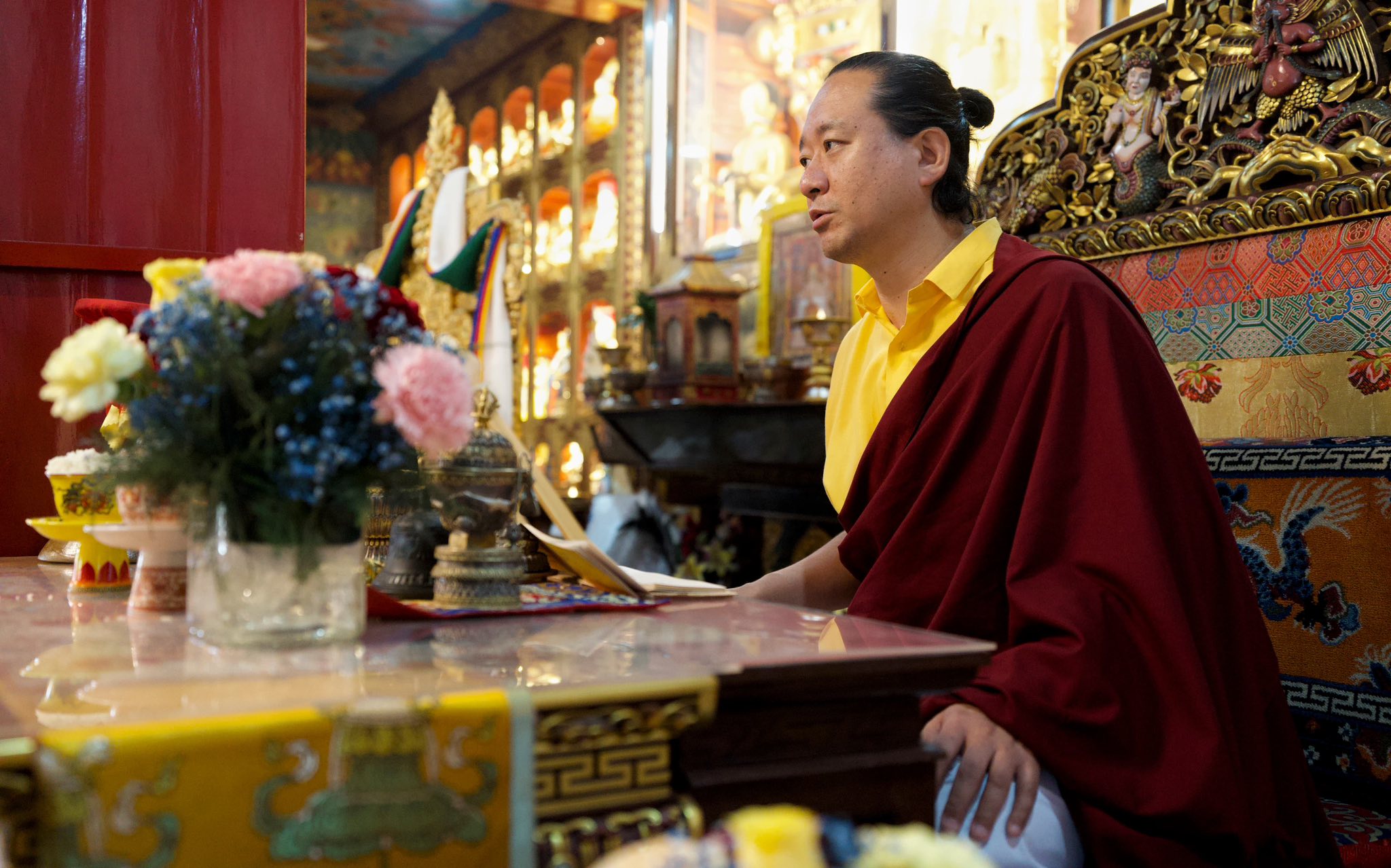His Holiness the 43rd Sakya Trizin, Gyana Vajra Rinpoche, gave this teaching online on February 15, 2022, before and after bestowing the Yellow Jambhala initiation, at the request of the Taipei Vajrayana Sakya Manjushri Center.
Wealth is a pursuit that occupies much of people’s lives.
But in Buddhism, wealth deity practices aren’t about fueling endless desire. They are skillful, compassionate means—using wealth as a support to help practitioners move forward on the path of liberation and, ultimately, awakening.
Think of it like a car: useful for reaching a destination, but neither the vehicle nor the act of driving is the goal itself.
So—does receiving a wealth deity empowerment mean our wishes will come true?
Will it bring wealth, blessings, even liberation?
What does it really mean to connect with the empowerment's blessings?
Is its essence found only in the ritual?
And does practicing the Dharma require us to turn away from all worldly concerns?
In this article, His Holiness addresses these very questions—dispersing confusion, revealing key insights, and guiding us toward deeper understanding and authentic practice.
Source: This teaching was obtained from the Vajrayana Sakya Manjushri Center, Taiwan.
Buddhism has never dismissed the role of wealth in everyday life.
Wealth itself isn’t the source of suffering—attachment is.
When approached with wisdom, wealth can not only sustain our daily needs but also serve as a powerful tool for cultivating merit and benefiting others.
That’s why Buddhism offers skillful means like the wealth deity empowerment, encouraging practitioners to use their resources with clarity and purpose.
But does simply attending an empowerment guarantee prosperity, good fortune, or blessings?
This teaching invites you to reflect: How should we prepare before receiving an empowerment? And how should we practice afterward?
Only through understanding and applying the teachings can we truly unlock the power of blessings.
So, how can the Dharma move beyond formality and become a true and stable refuge in our lives?
That’s what we’ll explore next.




